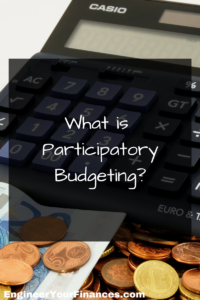How does participatory budgeting work?
PB involves meetings and votes. Each cities PB is adapted to its particular needs, but it generally follows these steps.
Design the process
The first step is to design the process. A committee and a representative of the community create the rules in partnership with the city officials to make sure the process is inclusive and meets the needs of the locals. This process shouldn’t take too long.
Come up with ideas
The next step is to come up with ideas. The city residents will brainstorm ideas. They will have the chance to share them through meetings in person and virtual. They will discuss ideas for the different projects.
Proposals
The third step is to develop proposals. Volunteers usually called budget delegates, develop the ideas into actual proposals. Once the proposals are developed, city experts then take a look at them.
Cast votes
Next, the residents of the communities vote to divide the available between the proposals. It is a direct democratic voice in the city’s future.
Fund the winning projects
After the votes are cast, the winning projects will be financed. Examples of winning projects are safety improvements for the city, Wi-Fi in public parks and improvements on the conditions of roads.
PB was first developed in the 1980’s in Brazil. By 2016, thousands of cities have implemented participatory budgeting. People get excited about it for several different reasons. Below are three of the most common reasons.
Community Building
Because of the regular meetings, people get to their neighbors. They feel more connected to their city. The local organizations spend less time lobbying and more time deciding policies. The budget meetings help to connect community groups and help them bring in more members.
Public education
Participants become more active and informed citizens. That’s good for any community. Community members, officials, and staff learn democracy by doing it. There is no better way to learn something than by doing it. They gain a deeper understanding of complex political issues and community needs.
Deeper Democracy
The people of the community have a real say. They get to make real political decisions. What community wouldn’t like that? Because of that participation budgeting tends to engage many people who typically don’t care about the government. Politicians also have the chance to build close relationships with the community members.
Preparatory budgeting sounds interesting, to say the least. It seems to be working pretty good in some places. I wonder what the effect of it would be if more cities in the US attempt to try it.
Do you think PB would work nationwide?
Jason Butler is an Atlanta native, as well as businessman, blogger and teacher. Not only is Jason a prolific flipper, marketer, writer and side hustler his number of years in higher education and student support have given him expert knowledge in understanding the economics of the student loan industry.

